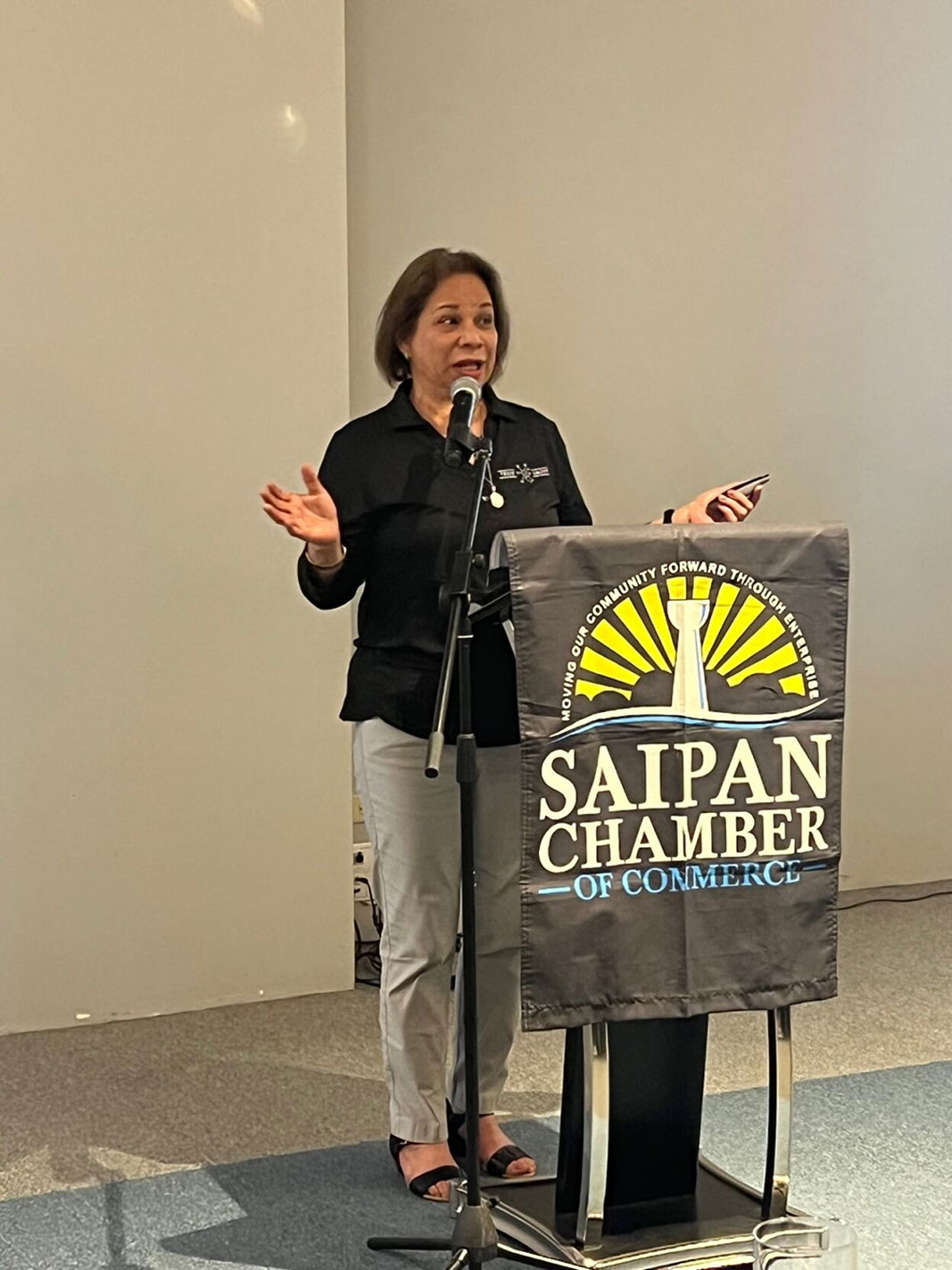Through its Work Based Learning Experience Program, Train Smart wants local companies to take a chance on students with disabilities so they can contribute to society.
“My specialty is working with adults with disabilities. I used to be the transition coordinator for special education and it’s sad that teachers and parents try so hard to educate and train these students and yet come graduation there’s not much for them to do and so they stay home and regress,” said Train Smart founder Josephine Mesta.
She said she’s always been an advocate for people with disabilities, especially students when she worked for the Public School System.
“So when I decided to retire, I made it one of my priorities, training individuals in general who need a little boost to get their feet in the door.”
Mesta served as guest speaker during the Saipan Chamber of Commerce monthly meeting last June 3 at Kensington Hotel.
 Train Smart founder Josephine Mesta was one of the guest speakers of the Saipan Chamber of Commerce during its monthly meeting last June 4 at the Kensington Hotel. (Mark Rabago)
Train Smart founder Josephine Mesta was one of the guest speakers of the Saipan Chamber of Commerce during its monthly meeting last June 4 at the Kensington Hotel. (Mark Rabago)
“What I need from the Chamber is for companies to open their doors so I can show students the different jobs they may be able to strive for after graduation, by visiting their place of employment and having our students experience what it takes to work. So far, I have five [companies] who have agreed to provide the opportunities for these youths,” she said.
An ordinary high school student may already have a hard time getting work after they graduate, what more for students with disabilities, according to Mesta.
“It’s much more for students who have challenges or disabilities. It’s harder for them so we want to start them earlier and maybe we’ll have some win-win by the time they graduate high school.”
Mesta said actual workplace experience is invaluable in transitioning students with disabilities to become productive members of society by finding their way in the workplace.
“Workplace experiences provide students with disabilities the knowledge and skills that help them connect what they learn in school onto the worksite. It’s easy for us to say, ‘okay, this is how you can clear this table’ and we can talk about it at school, but until they see the table being cleared, then it registers and sticks. If you have experience with working with people with disabilities, that’s pretty much what we have to do,” she said.
And the carrot at the end of the stick for businesses is they can have the Work Investment Agency or Office of Vocational Rehabilitation pay the student with disabilities that they will welcome onboard to train.
She just wants an assurance from businesses though that they genuinely attempt to train students with disabilities and not just take advantage of the free ride afforded to them via WIA and OVR. Finding work for students with disabilities becomes doubly important if you think about the alternative.
“One of the things that I saw after I left PSS is that my students who we worked so hard to train and then deploy when their parents died, it’s hard on the siblings to take care of them.”
As a former Human Resources director at Hyatt Regency Saipan, Mesta said she personally knows of success stories of students with disabilities that thrived after being hired and one even worked for a company for 17 years.
“Guess what, they come to work every day and are never late. As a matter of fact, we have issues when they have to go on vacation as they don’t want to. So, we have to force the issue and tell them they have to go on vacation,” she said.
For more information on Train Smart and their slew of programs like the Work Based Learning Experience Program, call Mesta at (670) 287-9033 or email her at This email address is being protected from spambots. You need JavaScript enabled to view it..
